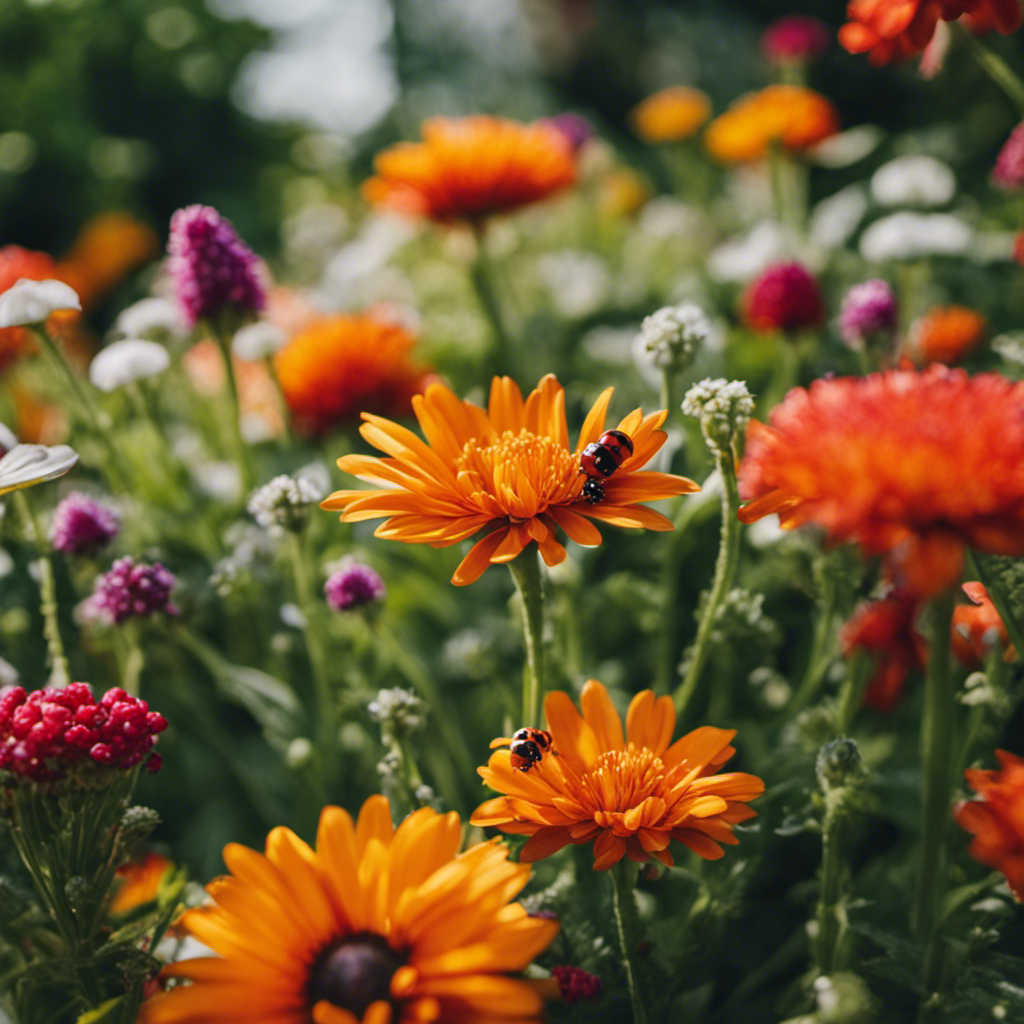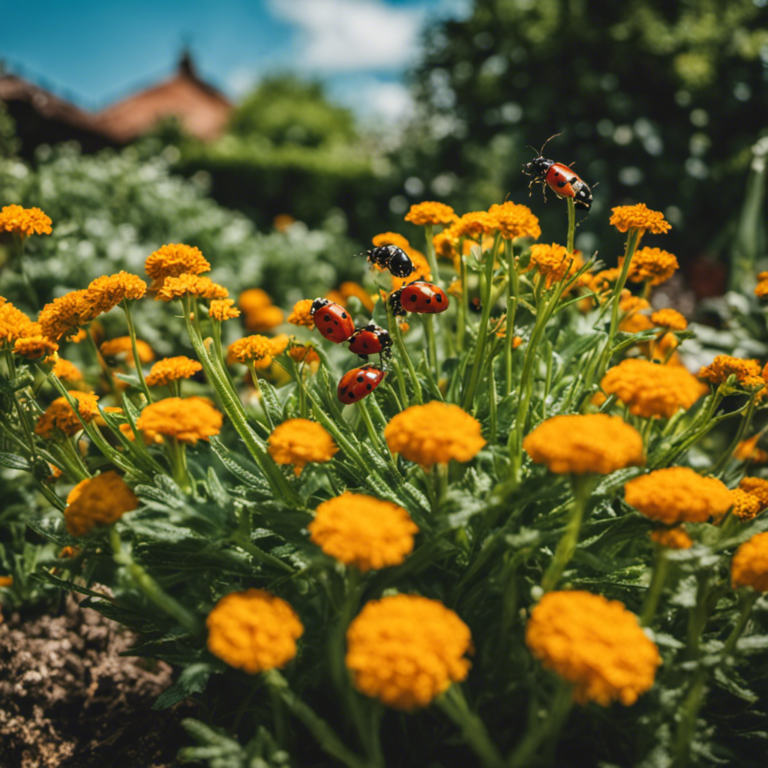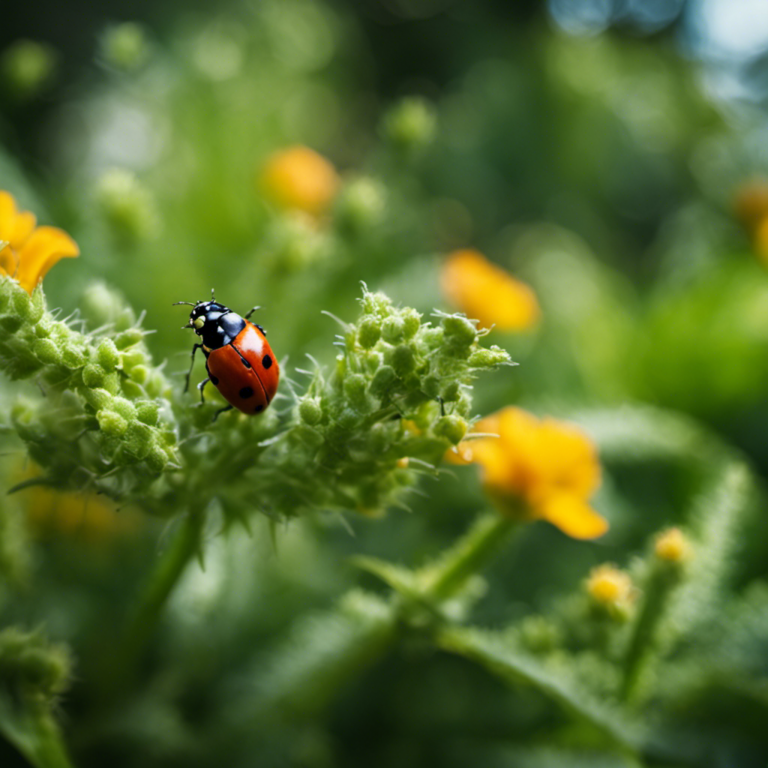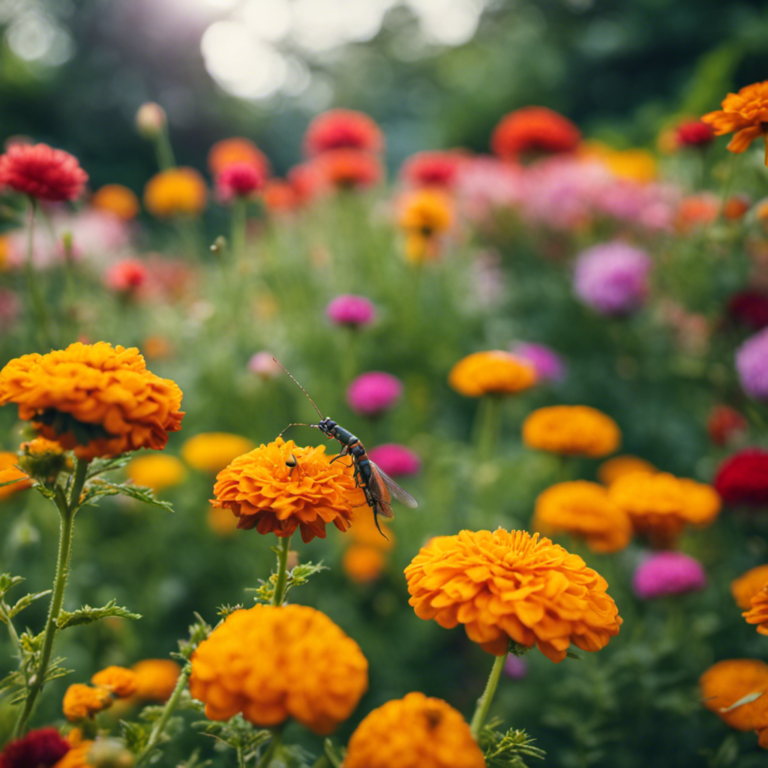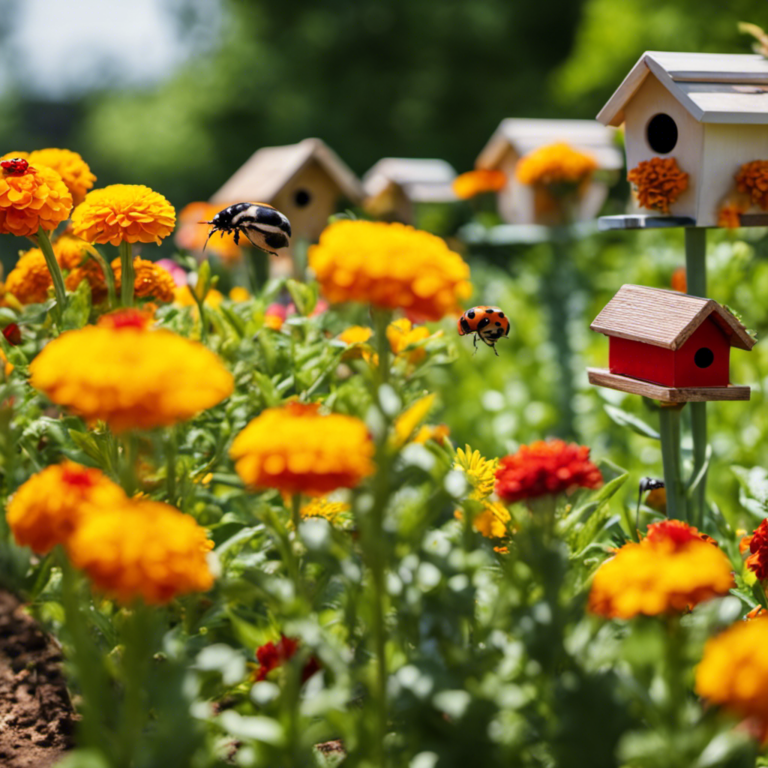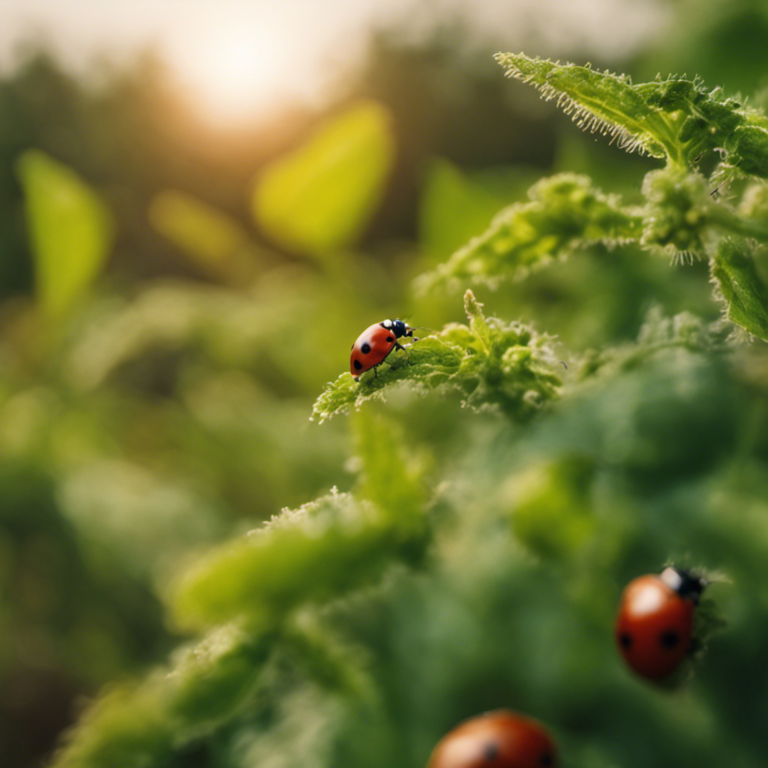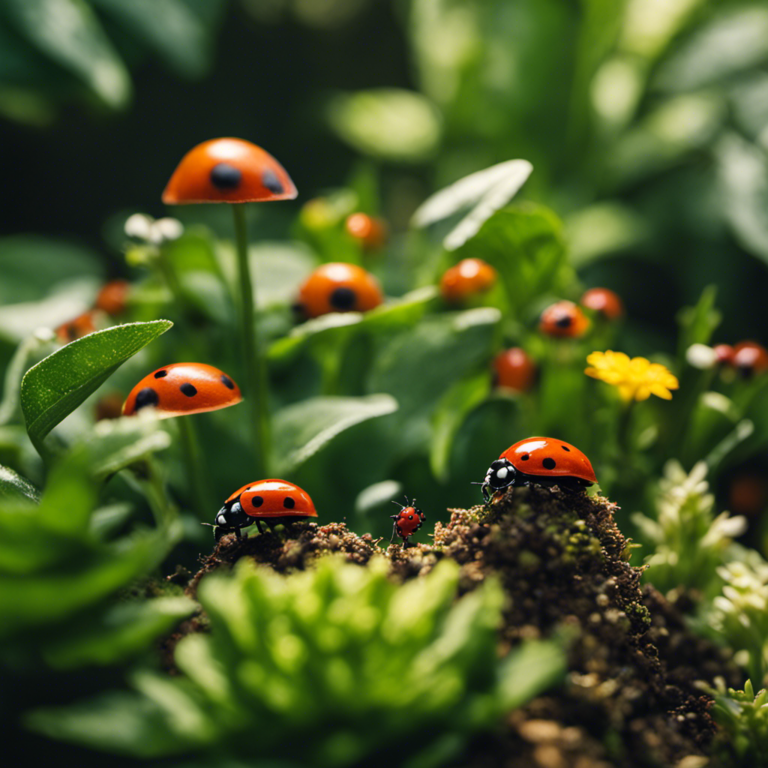Are those pesky pests wreaking havoc on your garden? Don’t worry! In this article, we have the perfect solution for you – effective organic pest control techniques that will help your garden thrive.
No need for harmful chemicals here! Instead, we’ll explore natural insect repellents, beneficial insects, homemade sprays, companion planting, and pest control traps.
With these simple and eco-friendly methods, you can take charge of your garden and create a pest-free paradise.
Let’s jump right in and get your green thumb back on track!
Key Takeaways
Implementing effective methods for organic pest control in your garden can help keep unwanted critters away without the use of harmful chemicals. According to a study published in the Journal of Economic Entomology, companion planting can reduce pest damage by up to 50%.
By strategically planting insect-repelling plants alongside your crops, you can create a natural barrier that deters pests and promotes a healthier garden ecosystem.
So why not give these organic pest control techniques a try and enjoy a thriving garden?
Natural Insect Repellents
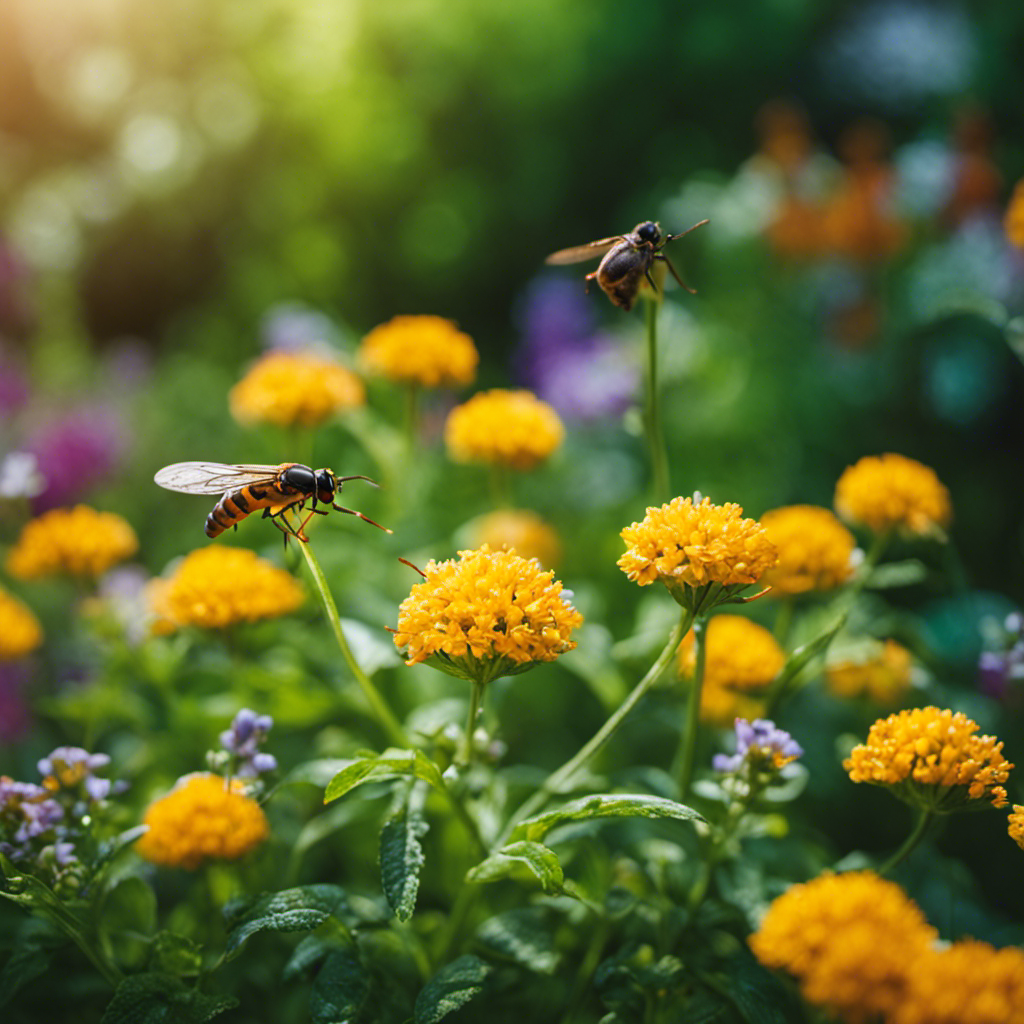
Protecting your garden from insects can be easily achieved with natural insect repellents. These repellents use ingredients like essential oils and vinegar, making them safe for both your plants and the environment.
Essential oils such as citronella, lavender, and peppermint have been proven effective in keeping insects away. You can create your own essential oil repellent by mixing a few drops of your preferred oil with water and spraying it around your garden.
Another option is to make a vinegar spray by combining equal parts vinegar and water. This mixture can be directly sprayed on plants or used to wipe down surfaces. The strong odor of vinegar repels insects and safeguards your garden from damage.
Beneficial Insects for Pest Control
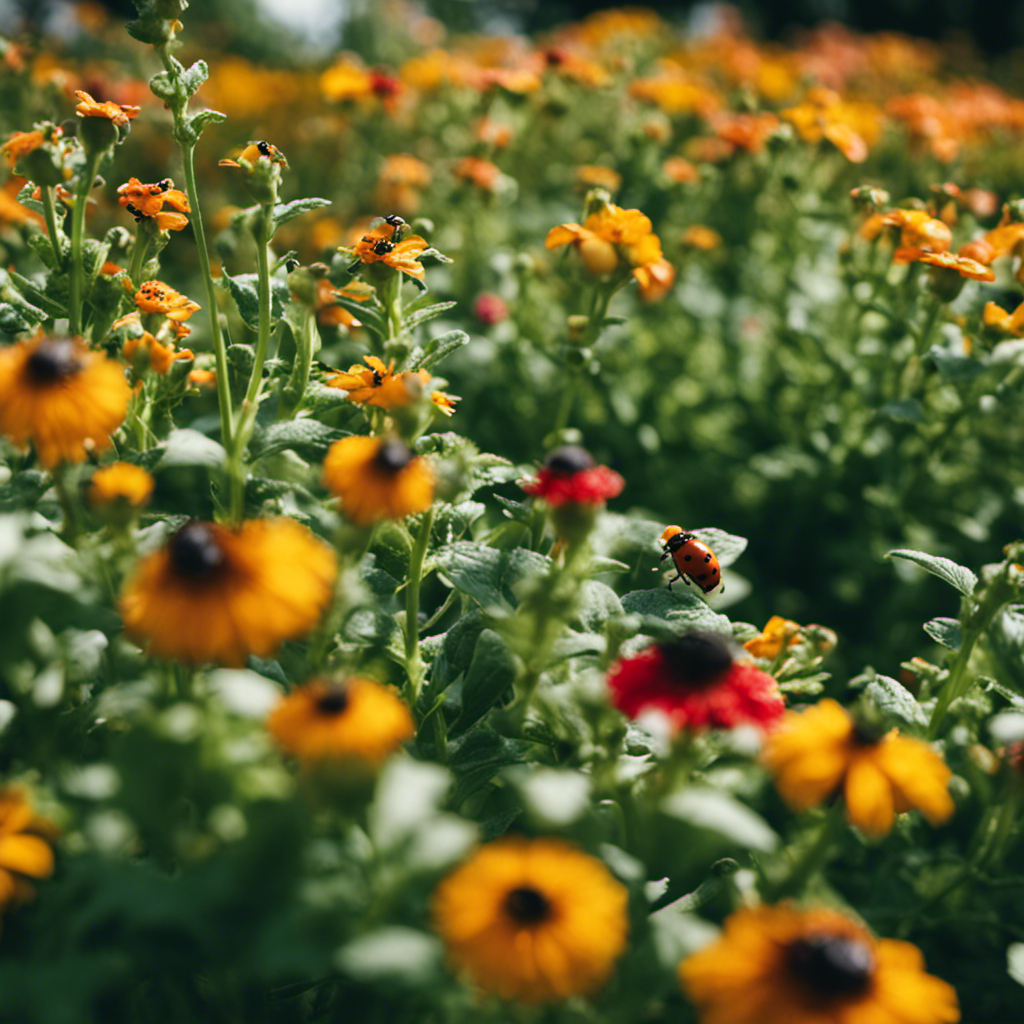
One effective method to protect your garden from pests is by utilizing beneficial insects for pest control. These insects can help control the population of harmful pests without the need for harmful chemicals.
A group of beneficial insects that can be attracted to your garden are pollinators, such as bees and butterflies. Not only do they aid in the pollination process, but they also feed on pests like aphids and mites. To attract pollinators, you can plant flowers and herbs that provide nectar and pollen.
Another option is to install insect houses, which provide shelter for beneficial insects.
Additionally, practicing organic pest control methods like companion planting, crop rotation, and natural predators can help establish a balanced ecosystem in your garden and keep pests under control.
Homemade Pest Control Sprays
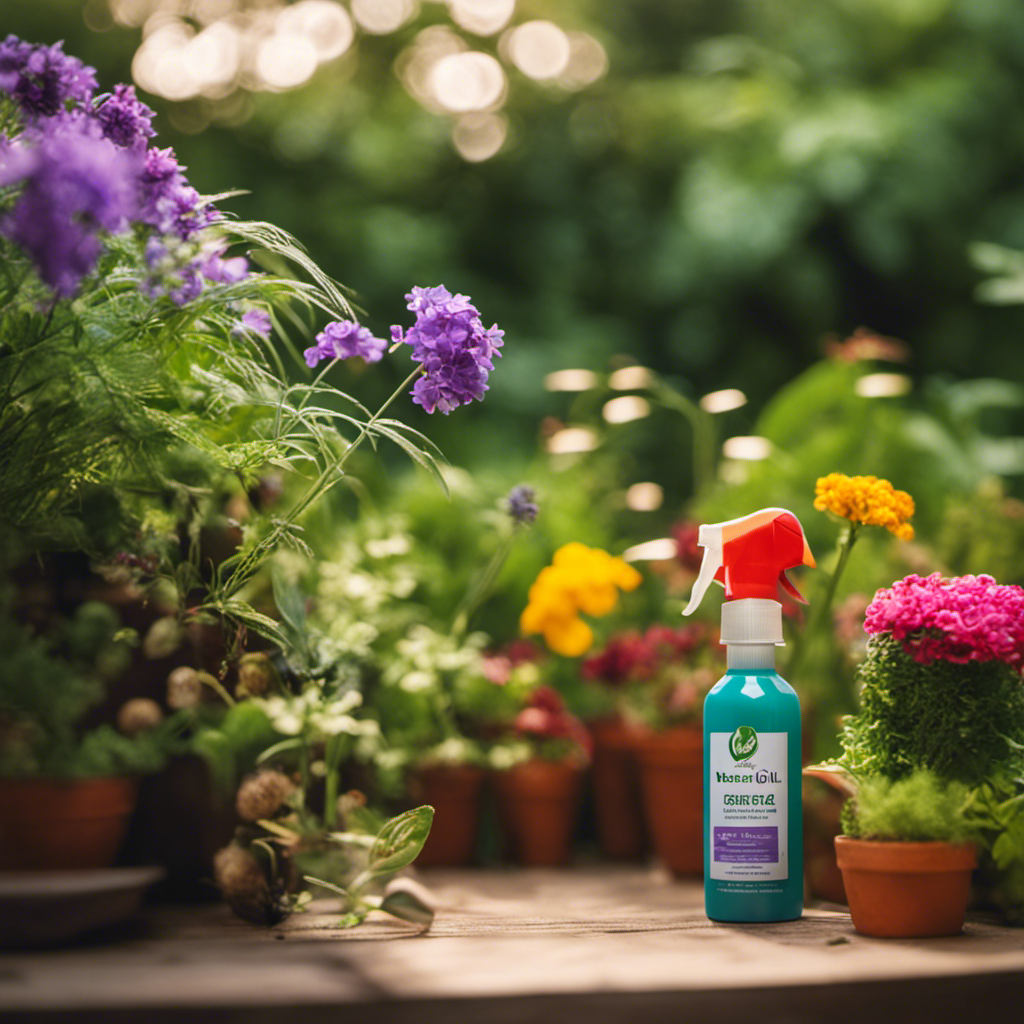
Make your own homemade pest control sprays to effectively protect your garden from pests.
One simple and effective method is using essential oils. By mixing 10-15 drops of essential oils such as peppermint, lavender, or citrus with water in a spray bottle, you can create a natural deterrent for pests. Shake the mixture well and then spray it directly on the plants, focusing on areas where pests are likely to gather. The strong scent of these essential oils acts as a natural repellent for many pests.
Another option for homemade pest control is vinegar solutions. By mixing equal parts vinegar and water in a spray bottle, and adding a few drops of dish soap, you can create a solution that can be sprayed directly on the pests or on the plants to deter them. Vinegar is known to disrupt the insects’ sensory systems and deter them from feeding on your plants.
Using homemade pest control sprays isn’t only cost-effective but also safe, as you won’t be using harmful chemicals. It’s a natural and environmentally friendly way to protect your garden from pests.
Companion Planting for Pest Prevention
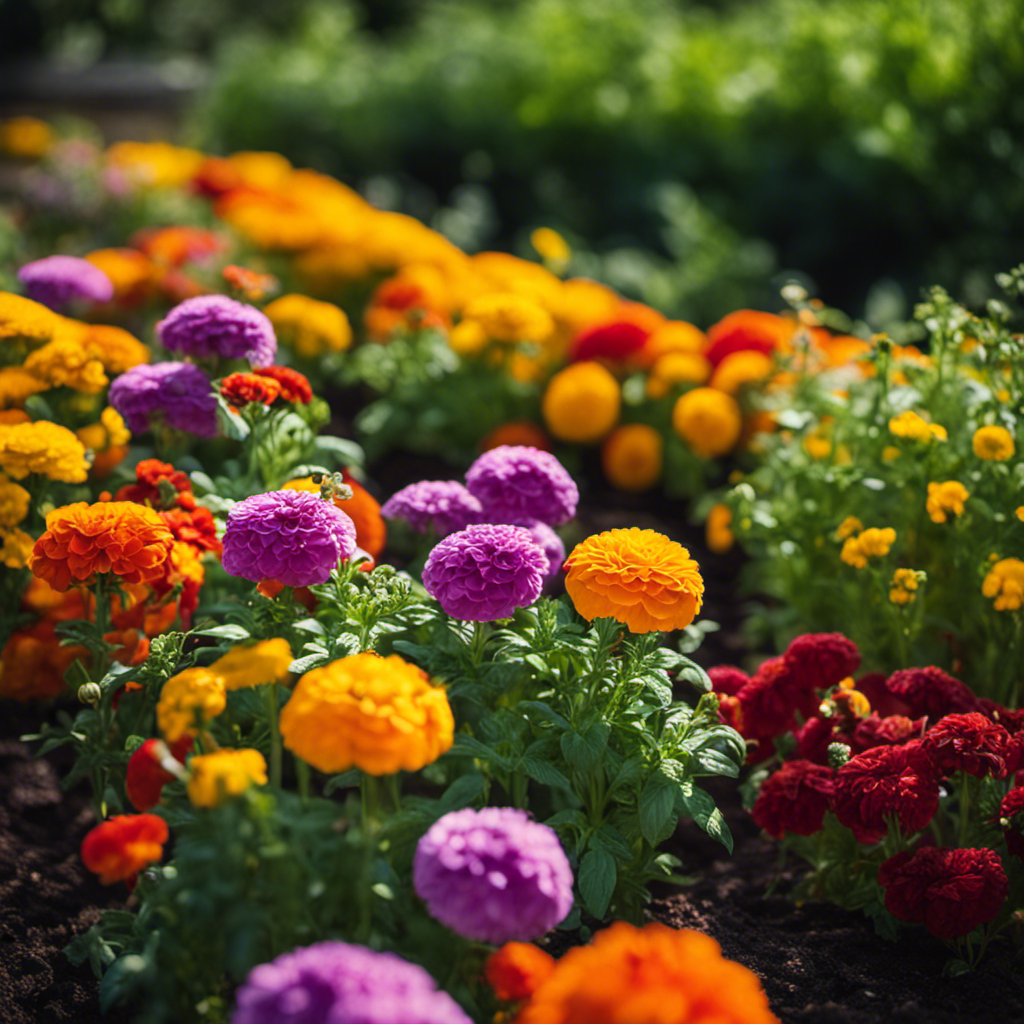
Improve your homemade pest control efforts by incorporating companion planting techniques to naturally deter pests in your garden.
Companion planting involves strategically placing certain plants together to promote healthy growth and ward off pests.
One effective method is crop rotation, where you alternate planting different crops in the same area each year. This disrupts the life cycles of pests and prevents them from establishing a stronghold in your garden.
Another important aspect of companion planting is selecting plants that enhance soil fertility and pest resistance. For example, planting marigolds near your vegetable crops can repel nematodes, while herbs like basil and rosemary can deter insects.
Organic Pest Control Traps and Barriers
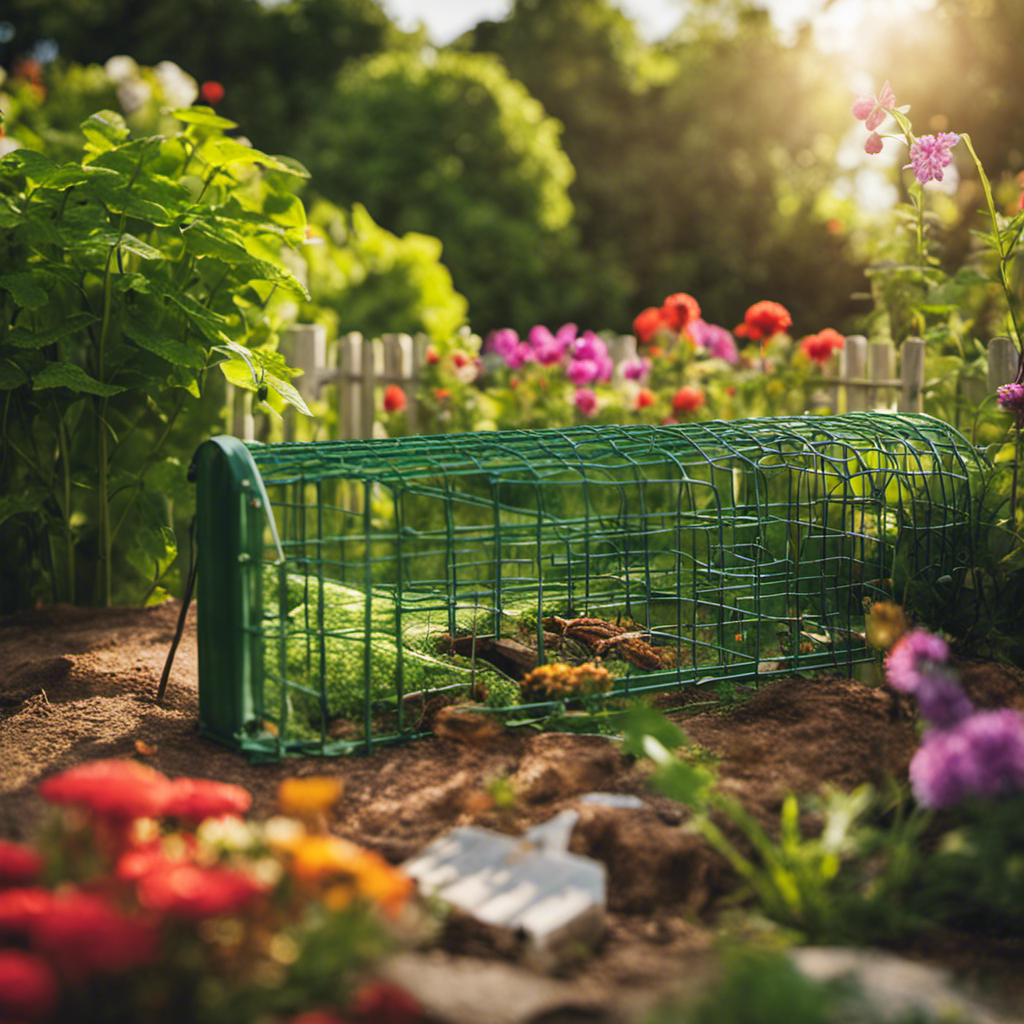
To protect your garden from pests, consider using organic traps and barriers. These methods offer safe and non-toxic pest control options that aren’t harmful to your plants or the environment.
Here are some effective traps and barriers you can implement:
-
Sticky traps: These traps are coated with a sticky substance that attracts and captures pests like aphids, whiteflies, and fruit flies. Hang them near affected plants to catch the pests while they’re in flight.
-
Copper barriers: An alternative solution is to install copper barriers around your garden. Slugs and snails dislike the sensation of copper and will avoid crossing it, helping to keep them out of your plants.
-
Row covers: Lightweight fabric row covers can be used to protect your plants from insects. These covers allow sunlight and water to reach the plants while keeping pests away.
Conclusion
Implementing effective organic pest control methods in your garden can help keep unwanted critters at bay without the use of harmful chemicals. According to a study published in the Journal of Economic Entomology, companion planting can reduce pest damage by up to 50%.
By strategically planting insect-repelling plants alongside your crops, you can create a natural barrier that deters pests and promotes a healthier garden ecosystem.
So why not try these organic pest control techniques and enjoy a thriving garden?
